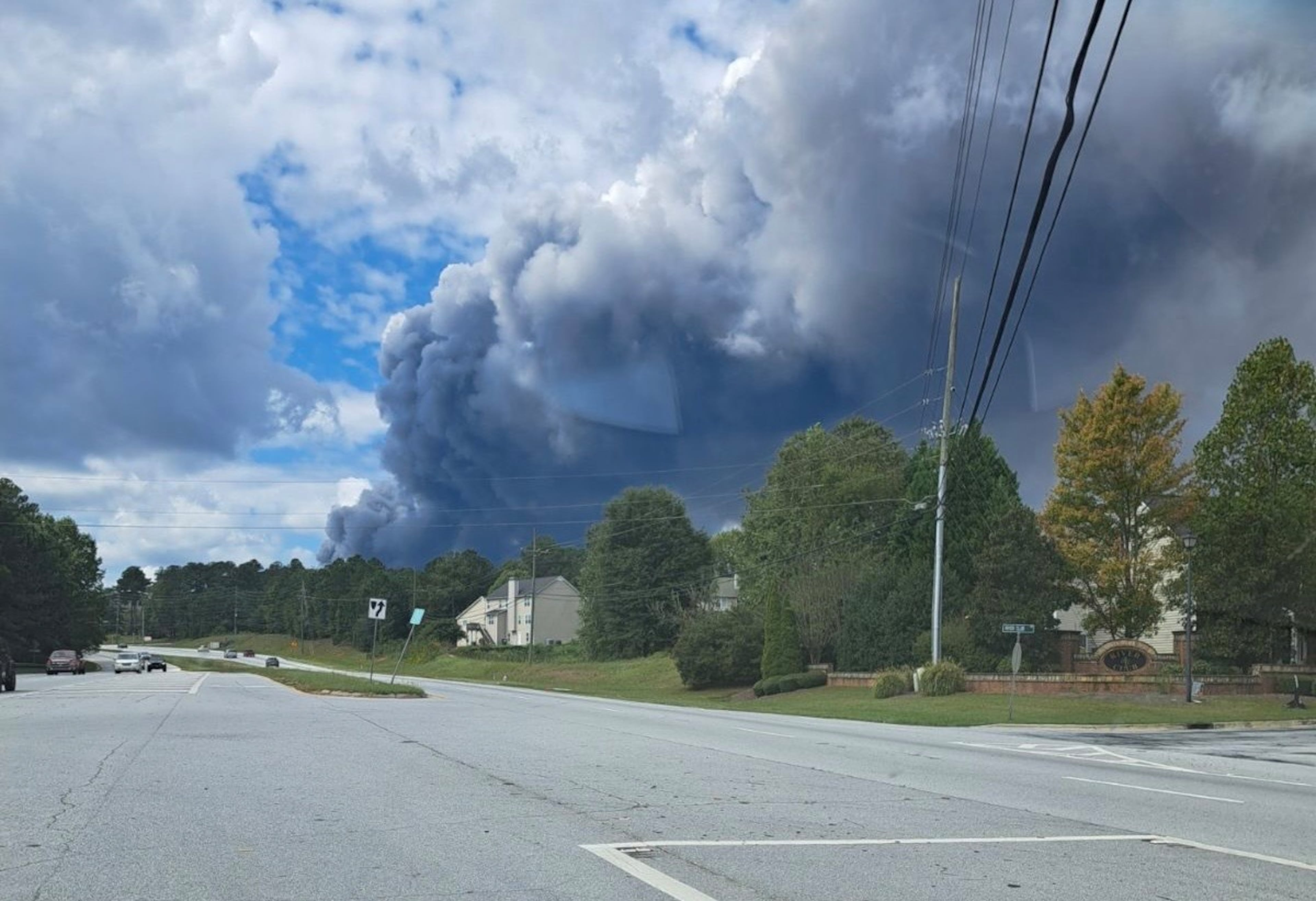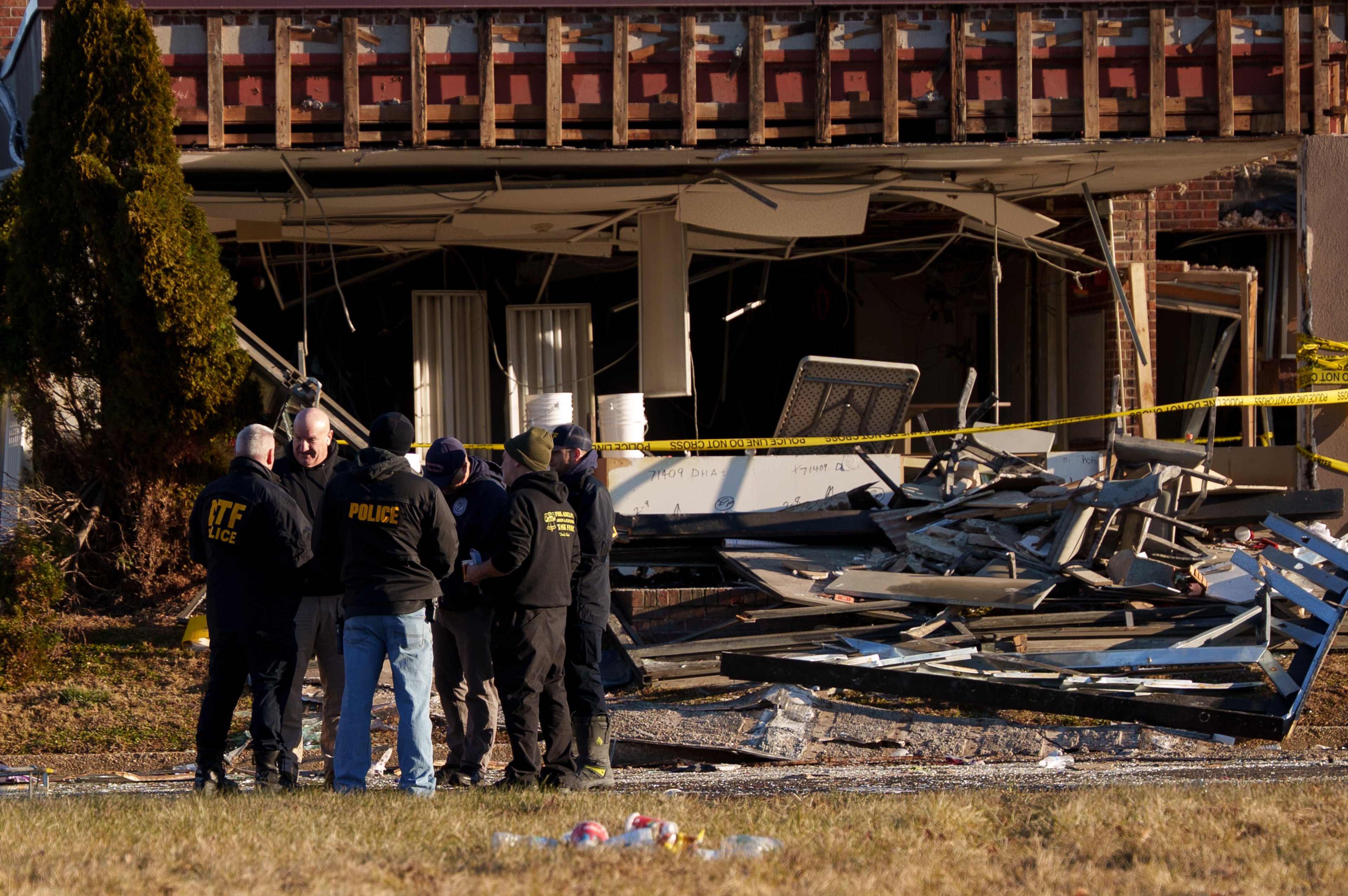Families fear health impacts from chemical plant as haze spreads in Georgia

Amy Hudson’s 10-year-old son Lauder woke up in the early morning hours Tuesday with a bloody nose and red-rimmed eyes. Hudson stepped outside of their home in Morgan County, which neighbors Rockdale County, only to be hit with the strong smell of chlorine.
“It was so hazy I could barely see our light on this side of the house,” Hudson said. “When you go outside and you see that, and your eyes burn, and your lungs burn immediately, and your throat hurts, and your son wakes up with a bloody nose and red eyes, you don’t know what to do other than leave, because you cannot shelter in place, not knowing if that’s safe while the plume is out there.”
The chemical fire in nearby Conyers at BioLab, a plant that treats pool and spa water, released a massive plume of smoke Sunday across numerous counties in metro Atlanta. The fire was caused by a malfunctioning sprinkler and led to 17,000 people in Rockdale being ordered to evacuate and 90,000 asked to shelter in place.
By Tuesday, the haze had reached well beyond Conyers, and reports of people experiencing a burning sensation in their nose and lungs stretched from Atlanta to the town of Buckhead in Morgan County.
Hudson and her husband, Bryan Wang, packed up their three kids and began looking for a hotel far away from the plume’s reach. Many hotels were booked, she said, and after two hours of searching online in the middle of the night, they began the drive to Birmingham, Alabama.
She said she’s trying to stay calm for her kids. The family celebrated her youngest son’s third birthday Sunday before the fire.
“You’re just going off fumes, just trying to keep it together, but it’s scary,” Hudson said.

Environmental officials are still investigating the chemical compounds released from the plant and the exposure levels. Chlorine and lower levels of bromine were detected in the air, officials confirmed.
In a news conference Tuesday, Rockdale County officials urged people to shelter in place if the plume moved over their area, keeping windows and doors shut and turning off air conditioning units.
Hudson doesn’t know when the family, including their 13-year-old dog Basil, will go back home.
“I can’t do that to my kids,” she said. “I already exposed them enough waking up trying to leave and smelling that.”
Another mother, Bobby Jo Greaver-Machic, lives closer to the BioLab plant but can’t evacuate the area because her husband still had to go to work Tuesday. She and her 3-year-old son both have itchy eyes and a burning sensation in their noses from the haze. She said she has also experienced nausea and a headache since Monday.

“It doesn’t feel good to breathe this stuff in. It hurts. It makes your head hurt. It’s hard to breathe in it,” Greaver-Machic said. “I just want my community to be safe. I want my son to be safe.”
Many others took to social media to report similar symptoms. Hudson and Greaver-Machic also questioned the official response to the fire and the messages going out to the public. Hudson said she’s frustrated with officials right now and feels they aren’t doing enough to warn people of the plume’s impacts.
“If it was just the smell and it wasn’t toxic, and I knew what the levels were that the EPA had, I could make that determination if I wanted to stay,” Hudson said. “But because we’re in the dark, I don’t have the facts to make that informed decision.”
Greaver-Machic said she doesn’t think people in the area are safe, especially if they have to keep working. Her husband works at a nearby restaurant that has not closed.
“If there’s a shelter in place for safety concerns for this hazardous material, why are you still allowing your citizens to be going into work?” she said. “They need to shut it down until it’s fixed, because I think that people are not totally safe.”

Air quality testing has not detected concentrations that would pose safety concerns to the general public. But those with underlying health conditions, such as asthma and chronic obstructive pulmonary disease, need to avoid exposure, according to Jeremy Sarnat, an associate professor at Emory University’s Rollins School of Public Health and a member of a scientific committee that advises the EPA.
Anyone who experiences symptoms should seek care from their primary care doctor, officials said in Tuesday’s news conference.


